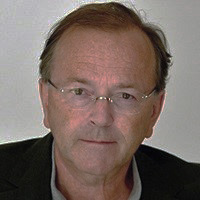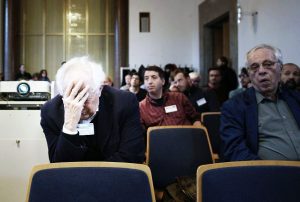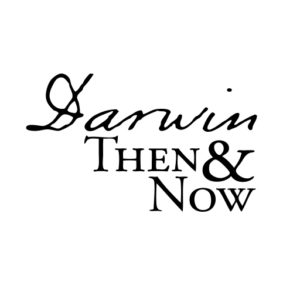 In the native land of Charles Darwin, for the first time, the Royal Society is challenging evolutionary academia to develop a new theory of biological evolution. As the original science organization in Western Civilization, the Society explains the problem with today’s most popular current theory:
In the native land of Charles Darwin, for the first time, the Royal Society is challenging evolutionary academia to develop a new theory of biological evolution. As the original science organization in Western Civilization, the Society explains the problem with today’s most popular current theory:
“Developments in evolutionary biology and adjacent fields have produced calls for revision of the standard theory of evolution, although the issues involved remain hotly contested.”
Increasingly, the standard theory of evolution has been challenged in the wake of the twentieth-century genomic revolution.
The validity of random genetic mutations coupled with natural selection as the standard theory of biological evolution is on center stage. The Royal Society’s radical referendum, scheduled for this November in London, is poised to revolutionize the current “hotly contested” and chaotic landscape of the evolution industry.
Altenberg-16 Angle
The standard theory has survived previous challenges, but only by default. The latest organized angle on evolution was a closed-door conference held in Altenberg, Switzerland, during the summer of 2009. Leading the charge was Massimo Pigliucci, Professor of Philosophy at CUNY–City College, along with Gerd B. Müller (pictured right), professor of Theoretical Biology and president of the Konrad Lorenz Institute for Evolution, University of Vienna, Austria.
Pigliucci and Müller find the evidence for the standard theory to be “either inaccurate or incomplete.” Since they see that the scientific evidence “clearly demolishes [es] the alleged central dogma [the standard theory],”  They convened sixteen leading evolution advocates to develop a framework for a new evolutionary consensus.
They convened sixteen leading evolution advocates to develop a framework for a new evolutionary consensus.
While the “standard theory” is the Royal Society’s newest vogue name for the theory of evolution, over the past half-century, there have been several different names for mostly the same theory – genetic mutations + natural selection. This list includes neo-Darwinism, neo-Darwinism synthesis, the central dogma, modern evolutionary synthesis, new synthesis, modern synthesis, evolutionary synthesis, millennium synthesis, and the modern synthesis theory of evolution.
The conference summit, dubbed The Altenberg-16, met locked in secrecy behind closed doors, barred from any news media coverage. Eventually, the Massachusetts Institute of Technology (MIT) published an essay from each attendee in the book Evolution, the Extended Synthesis (2010).
Despite their determination, however, a consensus on a new theoretical framework for evolution has remained elusive. Francisco J. Ayala, Professor of Biological Sciences, University of California, Irvine, endorsement of the book was less than revolutionary –
“If you want to know how the theory of evolution will likely expand and be configured in the twenty-first century, reading Evolution, the Extended Synthesis is a good way to start.”
Elliot Sober, professor of philosophy at the University of Wisconsin-Madison, is the only other evolution advocate to endorse the book. Amazingly, even his endorsement was more disparaging –
“The essays in this volume provide ample food for thought, and from all the major food groups!”
Surviving Contingency
 Only two from the Altenberg-16 contingency have survived to serve on the Royal Society’s referendum. These include Eva Jablonka (pictured left) of Tel Aviv University and Gerd Műller of the University of Vienna. Along with the other Altenberg-16 attendees, Jablonka and Műller both reject the standard theory of evolution.
Only two from the Altenberg-16 contingency have survived to serve on the Royal Society’s referendum. These include Eva Jablonka (pictured left) of Tel Aviv University and Gerd Műller of the University of Vienna. Along with the other Altenberg-16 attendees, Jablonka and Műller both reject the standard theory of evolution.
Beyond the storm of denials within the evolution industry, the mounting scientific evidence for biological evolution has forced the theory of evolution into a crisis mode, as recognized by the Royal Society.
“Since the 1990s,” Jablonka argued in Evolution, the Extended Synthesis, “a growing number of evolution-oriented biologists have expressed the view that the foundations of the Modern Synthesis [also known as the standard theory or central dogma]—the evolutionary paradigm that was constructed during the 1930s and 1940s and dominated views of evolution for the past 60 years—need rethinking.”
Műller echoes Jablonka’s sentiments –
“The origin of novelty and its role in the evolution of phenotypical complexity represents an evolutionary problem that the Modern Synthesis had sidelined due to its focus on variation and population dynamics.”
Jablonka and Műller’s anti-standard theory coalition is shared by a number of the 20 other Royal Society attendees. James Shapiro in “Evolution, a View from the 21st Century” (2011) explains –
“… the intellectual foundations of molecular biology [evolution] have indeed been shaken−and shaken hard.”
Right Turn, Wrong Street
While taking the right turn in the attempt to resurrect a dying theory, though, the Royal Society is turning down the wrong street, from hard science to soft science. In seeking a new theory, society is shifting its focus away from hard scientists and toward behavioral scientists, social scientists, and philosophers.
Hard sciences include physics, chemistry, and astronomy–not the social sciences. Unlike the soft sciences, observed qualitative and quantitative data from hard sciences can be used to formulate ideas, hypotheses, and theories. Through extensive testing, theories can ultimately lead to the discovery of natural laws.
Isaac Newton, once president of the Royal Society (1703 – 1727), discovered the laws of gravity and motion using this method, known as the scientific method. Soft sciences cannot meet the standards of hard science.
On the society’s original coat-of-arms is the phrase Nullius in Verba, meaning “take nobody’s word for it.” However, since the soft sciences cannot escape the subjectivity of words, the Royal Society is now drastically different from its founding in 1660.
The soft scientists invited include Nancy Cartwright of Durham University, UK, Douglas Futuyma of Stony Brook University, USA, Eva Jablonka of Cohn Institute for the History and Philosophy of Science and Ideas, Tel-Aviv University, Israel, Sir Patrick Bateson of University of Cambridge, UK, Agustín Fuentes of University of Notre Dame, USA, Susan Antón of New York University, USA, and Melinda Zeder of National Museum of Natural History, Smithsonian Institution, USA. The philosophers are John Dupré of the University of Exeter, UK, Karola Stotz of Macquarie University, Australia, and Tim Lewens of the University of Cambridge, UK.
As configured by the referendum invitees, the Royal Society will move even further from the hard sciences than the Altenberg-16 summit. Only a minority of the Altenberg-16 attendees were soft scientists.
Once the vanguard of science, the Royal Society’s November referendum serves as yet another example of how the evolution industry is progressively blurring the lines between science, pseudoscience, and mythology.
The Science Slide
 No law of nature has ever been discovered through the soft sciences. In the opinion of George Ellis from the University of Cape Town and Joe Silk (pictured) of the Paris Institute of Astrophysics (2014) at the Romanesque-style Ludwig Maximilian University event earlier this year –
No law of nature has ever been discovered through the soft sciences. In the opinion of George Ellis from the University of Cape Town and Joe Silk (pictured) of the Paris Institute of Astrophysics (2014) at the Romanesque-style Ludwig Maximilian University event earlier this year –
“The imprimatur of science should be awarded only to a testable theory… Only then can we defend science from attack.”
Turning down the wrong street highlights the increasingly apparent problem with the theory of evolution–science is not on its side. A promising theory is now destroyed by reality. To resurrect the theory of evolution, however, the sidelining of science is now seen as essential.
Nobel laureate David Gross, who was awarded a Nobel Prize in 2004, noted at the Ludwig workshop that the problem with evolution is not with science, but with the “fact of nature.” The human engineering, a non-testable theory, Gross noted, only serves to demonstrate “anthropomorphic arrogance.”
As Natalie Wolchover, science writer for Quanta Magazine, regrets that while the history of evolution has a legion of beautiful theories, like the standard theory, but –
“… theoretical beauty is not always truth.”
The Royal Society’s new alliance with the soft sciences will continue to drive the theory of evolution further into the realm of mythology. Isaac Newton must be horrified. The turning of the Royal Society to the soft sciences demonstrates why the theory of evolution is still not a “scientific fact.”
Darwin’s dilemma intensifies.
Genesis
Despite a flood of challenges since the publication of The Origin of Species in 1859 by Charles Darwin to prove otherwise, the scientific evidence on the laws of nature continues to be compatible with the Genesis record written by Moses. Isaac Newton, an English physicist and mathematician of the Scientific Revolution, viewed rejecting creation as a senseless myth –
“Atheism is so senseless and odious to mankind that it never had many professors.”
Developing a scientific consensus on the mechanisms of evolution remains speculative.
The Royal Society is a Theory and Consensus article.
Darwin Then and Now is an educational resource on the intersection of evolution and science, highlighting the ongoing challenges to the theory of evolution.
Move On
Explore how to understand twenty-first-century concepts of evolution further using the following links –
-
- The Understanding Evolution category showcases how varying historical study approaches to evolution have led to varying conclusions. Subcategories include –
- Studying Evolution explains how key evolution terms and concepts have changed since the 1958 publication of The Origin of Species.
- What is Science explains Charles Darwin’s approach to science and how modern science approaches can be applied for different investigative purposes.
- Evolution and Science feature study articles on how scientific evidence influences the current understanding of evolution.
- Theory and Consensus feature articles on the historical timelines of the theory and Natural Selection.
- The Biography of Charles Darwin category showcases relevant aspects of his life.
- The Glossary defines terms used in studying the theory of biological evolution.
- The Understanding Evolution category showcases how varying historical study approaches to evolution have led to varying conclusions. Subcategories include –


